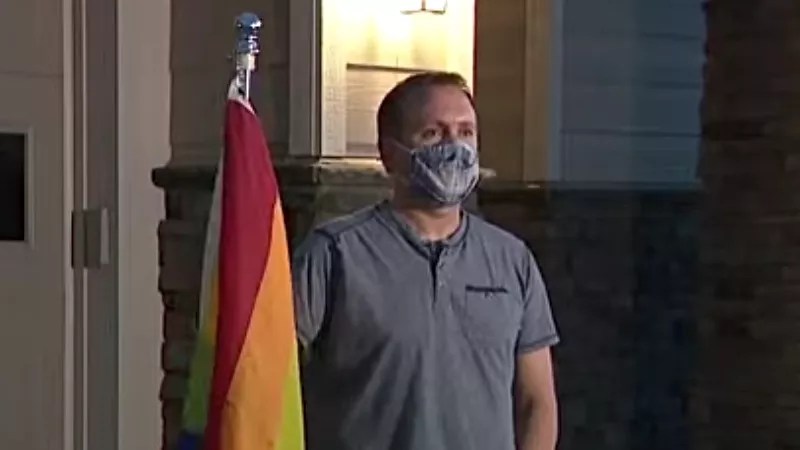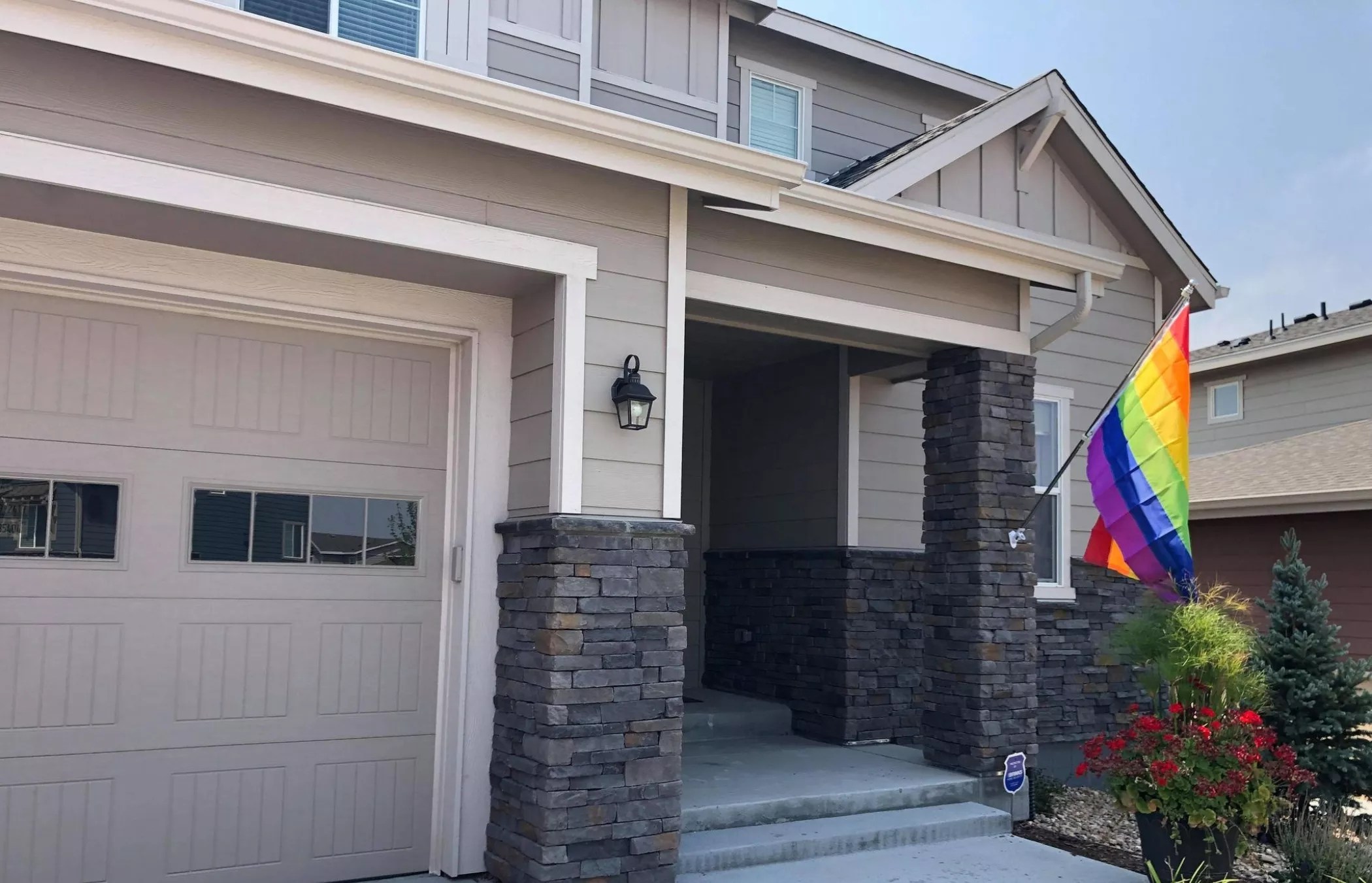
Denver7 via YouTube

Audio By Carbonatix
Against the backdrop of continuing controversy over local homeowners’ associations trying to prevent residents from displaying flags or signs that support the Black Lives Matter movement, David Pendery is suing the metropolitan district in the Arapahoe County neighborhood where he lives. The suit, filed February 23, argues that the district is violating his constitutional right to fly a Pride flag and post a sign that underscores his family’s belief that “Black Lives Matter, Women’s Rights Are Human Rights, No Human Is Illegal, Science Is Real, Love Is Love, Kindness Is Everything.”
Pendery understands that the suit, filed by the ACLU of Colorado in federal court for the District of Colorado, could have the effect of preventing districts and HOAs from banning Pride flags and BLM messaging across the state. But it’s also a matter of principle.
“I have a two-year-old and an eight-year-old,” Pendery says. “And it’s important for my husband and I to show our kids we’re going to stand up. When it comes to LGBTQ+ issues, it’s important to stand up for what’s right, and for your family. We wanted them to see that we’re standing up for what we think is right in this world – and that’s an important issue for anyone to learn.”
The saga began in August, when a neighbor on the local Facebook group shared “a complaint about a Pride flag,” Pendery recalls. “I thought, that’s sort of silly. So I said, ‘I’m going to put up a flag for my family.’ And I posted a picture in that Facebook group.”
A day later, the management company for Whispering Pines Metropolitan District #1 “just happened to do a neighborhood drive-through to look for covenant violations,” he says. Shortly thereafter, Teleos Management Group, which manages the district on behalf of Whispering Pines, sent Pendery a letter maintaining that the Pride flag ran afoul of the regulations.
Under the district’s rules, the only flags that can be displayed without prior permission are “the American flag,” “a service flag bearing a star or denoting the [military] service of the Owner or occupant of the Lot,” “sports teams’ flags…during the duration of a single sporting event (not the entire sport season)” and “holiday flags,” so long as they’re hoisted not more than thirty days before the holiday and removed no later than fifteen days after.

A photo of David Pendery’s house from this past summer, when the Pride flag was flying.
Courtesy of David Pendery
The letter asked Pendery to describe “the purpose/symbolism” of his flag.
His response: “As an LGBTQ family living within the Whispering Pines Metro District, we have elected to periodically display a Pride flag, with the full support of our neighbors, to show support and solidarity with families like ours, who face discrimination on a daily basis.”
Teleos later gave Pendery permission to hang the Pride flag, but with limitations; the approval was only good through December 31, after which he needed to resubmit an application. This struck him as ridiculous.
“If it’s the exact same flag flown in the exact same place and has the exact same message, what’s the difference between December 31 and January 1?” he asks. “But the covenants are written in such a way that they can levy fines, and because it’s a metropolitan district, it’s a quasi-governmental entity with broad powers when it comes to enforcement.”
He hasn’t flown his Pride flag in 2021 and hasn’t put out the BLM-related sign, either, because “I was afraid they’d come after me for exercising my constitutional rights,” he says.
Instead, he filed an open-records request to learn more about the district’s process. “It took some work,” he admits. “I had to keep pushing them. But eventually, I got hundreds of pages of emails through their attorney, and I discovered that the people responsible for enforcement definitely weren’t applying these covenants in a consistent manner. They didn’t seem to have a problem about other covenant rules that weren’t being followed, like trash cans and basketball hoops being left out – but they definitely seemed concerned about Pride and Black Lives Matter flags. One person referred to someone’s Pride flag as ‘extremely offensive’ and the management company called someone who’d put one up a couple of times as a ‘problem child.'”
Meanwhile, he found, BLM flags and signs were derided as “a political statement” in the wake of protests staged after the May 2020 murder of Minneapolis’s George Floyd.
“I was frankly disappointed,” Pendery says. “This is an amazing neighborhood, and I’m fortunate to live in a relatively affluent community with great schools. And I appreciate that the role of the board is to protect homeowners’ investment. But I don’t believe that they have the right to pick and choose what rules to enforce based on their personal beliefs or value systems or biases. I don’t think they should have the power to stifle free speech – especially free speech that’s only meant to show support and love and community at a time when the community at large so desperately needs it. So I reached out to the ACLU and said, ‘I don’t think they can do this,’ and they agreed. And that’s how we got to where we are.”
Click to read David Pendery v. Whispering Pines Metropolitan District #1.